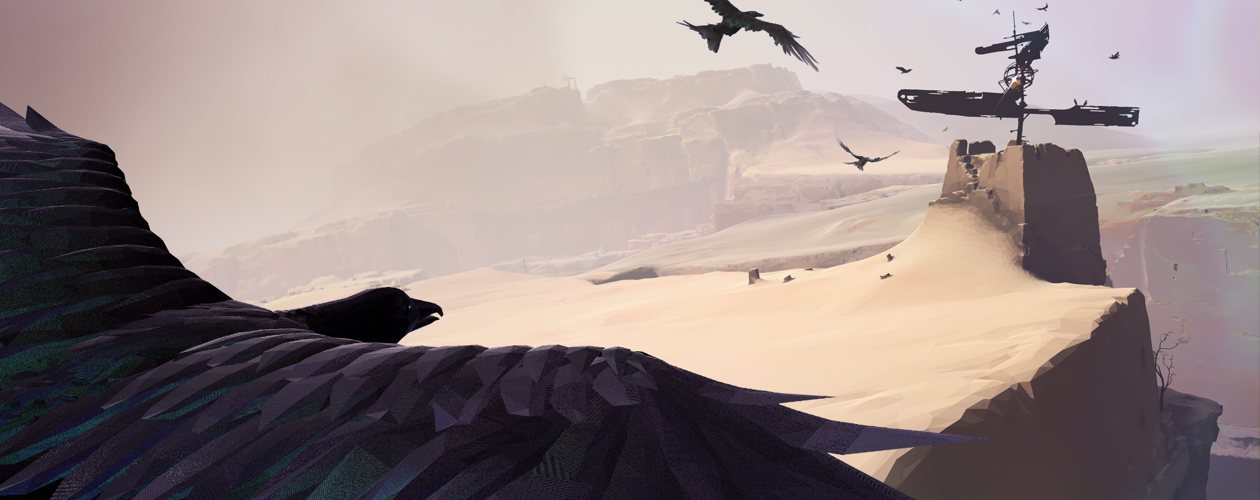Handing you almost total freedom, Vane begins by letting you fly freely across a vast, sun soaked desert. It’s a gorgeously open-ended introduction, but you’re soon shackled by the puzzle design and pacing, resulting in an experience that promises a lot, but delivers very little.
It may sound like I’m being overly harsh in my initial critique of Vane, but with a development team that has credits behind the likes of The Last Guardian, Battlefield 3, and numerous other triple A titles, I can honestly say I expected a lot more.
Right from the very off, it is easy to notice some of unusual design decisions that drive the game’s pacing. That initial opening segment of flying across a vast desertsoon grew tiresome as it wasn’t clear what I needed to do in order to progress. After aimlessly flying around for nearly half-an-hour or so, I realised that I should have been looking for a small glint shining off in the distance.
This lack of direction and logical problem solving is common across Vane and I regularly found myself unsure as to what the next step was. It’s a relatively short game, spread across four or so acts, but I feel it would have taken me half the time to finish if the puzzle design wasn’t so obtuse.

During each of its four acts there are some really visually and audibly stunning moments. The haunting electronic music collides with an abstract art style reminiscent of Picasso’s geometric use of harsh angles, creating visually striking set pieces that elevate Vane. It truly is an exceptional title in this regard, providing what has been one of the most unique visual experiences I’ve had in some time.
But as soon as you start forgetting Vane’s various issues, you are suddenly brought crashing back down to earth by the myriad of stability issues. The game crashed for me a number of times, having fallen through a piece of the environment into complete infinity. Environmental clipping is common issue across the game, as the main protagonist can often react unpredictably when walking through the world. This is especially prevalent during the later parts of the game when the ground beneath the player behaves often erratically. That instability, coupled with a checkpointing system that can see you lose large chunks of progress, can make progressing in Vane a real slog.
Some of the issues I encountered may have been remedied by recent patches, but even with the latest update the game still runs really poorly on the PS4 Pro. The game regularly drops frames and can run below 20fps at points. In a game that invests so much into its visual experience, it’s disappointing that it’s marred by poor performance.

Narratively, Vane is vague in its delivery. There are a lot of overarching themes of life and death, imprisonment, ascension and the destructive capabilities of nature, but they don’t gel together in a way that feels cohesive or productive to a plot. It feels like Vane is just a series of pretty events held together by slow and nonsensical puzzle design. It’s a shame as I like how how abstract the experience is as a concept and how it doesn’t hold the players hand or guide them through the narrative, but it certainly goes too far the other way.

